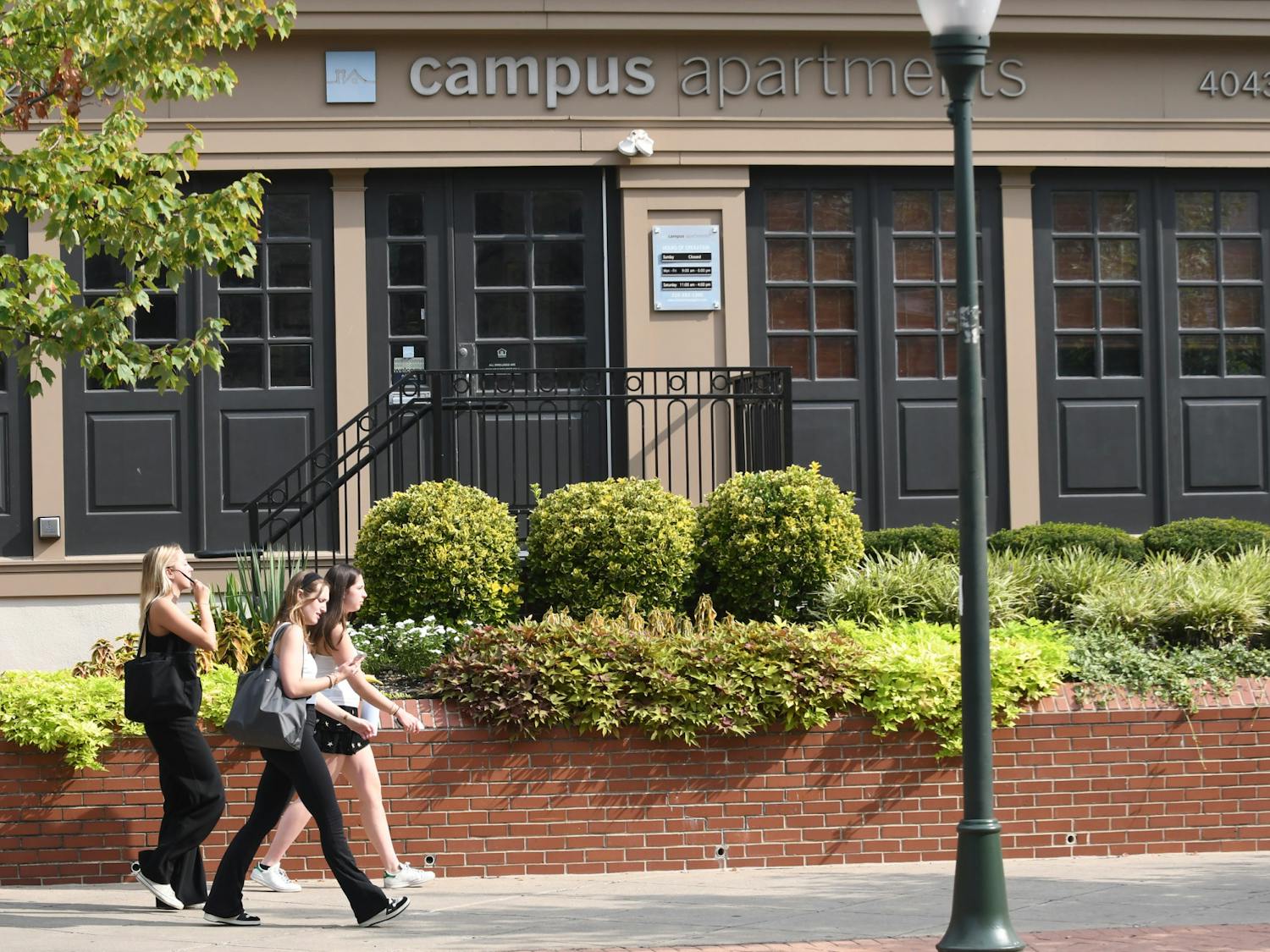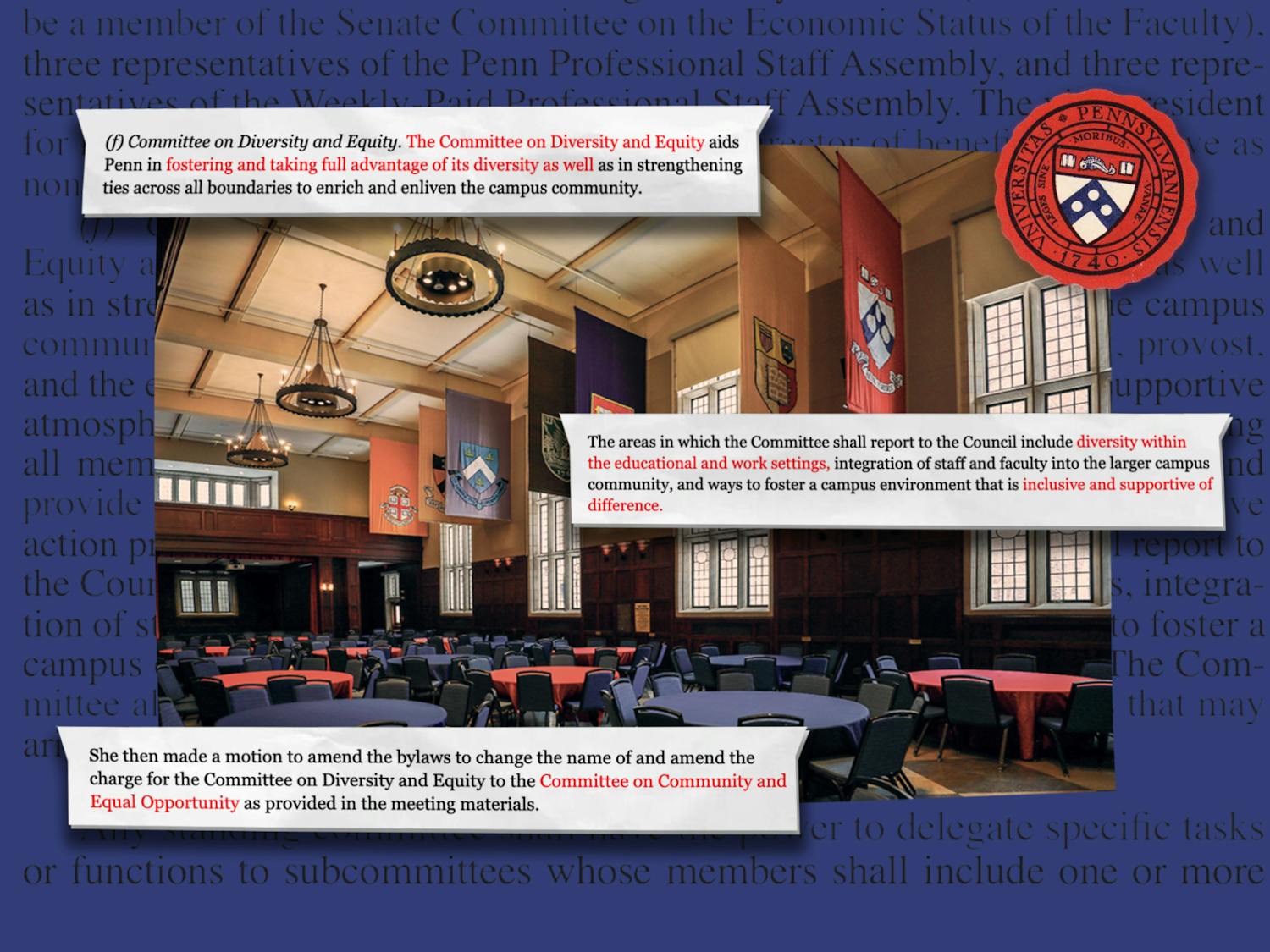Penn students have sharply critiqued the recent hiring of Jonathan Anomaly as associate director of the Philosophy Politics & Economics Department for a paper he wrote in 2018 titled "Defending eugenics."
Anomaly’s paper advocates for improving access to genetic education and technology and subsidizing contraceptives to allow people to make conscious decisions about their children's traits. In the paper, he wrote that the eugenics he defends should be distinguished from the eugenics movement that took a "racist direction" in the United States and Germany. Students, however, say the paper’s argument is still offensive and alienates certain students.
Eugenics is the controversial practice and study of creating a society with desirable hereditary traits. The term is commonly associated with Nazi Germany and the forced production of a superior race through biological experiments.
"The title of this essay is deliberately provocative. Eugenics can be thought of as any attempt to harness the power of reproduction to produce people with traits that enable them to thrive," Anomaly wrote in the paper's introduction. "Nearly everyone agrees that parents should provide an environment that promotes the welfare of their children."
Anomaly said the paper was initially to be a part of a book anthology on ethics in an interview with The Daily Pennsylvanian. Thinking his audience would be predominantly bioethicists, Anomaly said he did not think the title would garner the controversy it has with students today.
“In hindsight, I just should’ve used a different title,” Anomaly said. “I should’ve just said defending genetic enhancement, but my audience, I thought, was just going to be bioethicists, but it turned out that word has become a buzzword and I think a lot of people now just use it as meaning something like Nazi eugenics.”
Some students said the word "eugenics" is inherently tied to negative historical connotations.
College junior Sabrina Ochoa, who is a PPE major, criticized Anomaly's historical analysis of eugenics. After the department announced Anomaly's hiring earlier this month in an email to majors, Ochoa searched his name on Google and found the paper.
RELATED:
Undergraduate Assembly demands that Penn fire Amy Wax for violating University policy
Marching together, Penn Law students call on University to fire Amy Wax
“Eugenics has historically been associated with controlling, punishing, and violence towards different people who had been racialized and you can’t really remove it from that historical context," Ochoa said.
2019 College graduate Luis Bravo said the word "eugenics" was a flawed attempt to attract more readers.
"You don’t title a paper 'Defending eugenics' without knowing some notion of what the connotation of eugenics is and what the potential reaction [to] that could be," Bravo said.
Students argued that even if Anomaly had not used the word "eugenics" specifically, the paper still promotes racial essentialism, or a "belief in a genetic or biological essence that defines all members of a racial category."
Ochoa said the “racist connotations” can be seen when Anomaly discusses Nazi eugenics. While Anomaly calls Hitler’s attempt to exterminate Ashkenazi Jewish people “morally outrageous,” Ochoa pointed to parts of the paper that state, “a truly eugenic program might have encouraged Jews to breed more, not less” and that Ashkenazi Jewish people were “arguably among the most intelligent and productive people of the twentieth century.”
College junior Jackson Maxwell said especially in light of the controversy surrounding Penn Law School professor Amy Wax, he finds it shocking that Penn chose to hire Anomaly as PPE's associate director.
Maxwell said while Wax’s statements were “super problematic” in discussing a hierarchy of cultures, he said Anomaly promotes the idea of a hierarchy of biological races in his paper.
“[In the paper] there are certain groups — he mentions Jewish people as an example — that are inherently genetically superior than everyone else, and that’s just so many layers even beyond what Amy Wax said,” Maxwell said.
In July 2019, Wax argued for an immigration policy favoring immigrants from Western countries over non-Western countries at the inaugural National Conservatism Conference. Thousands have since signed a petition calling on Penn Law to denounce Wax’s statements and relieve her of all teaching duties.
Ochoa said Penn needs to be “more careful about its hiring choices” in the wake of the Wax controversy and that Penn needs to consider how the views of faculty and staff members can alienate certain students at Penn.
School of Arts and Sciences Dean Steven Fluharty did not respond to request for comment.
Bravo said he appreciates Anomaly’s admittance that he should not have titled the paper “Defending eugenics" and that it is important to note that Anomaly does not argue for more government intervention as seen in the early 20th century, referring to Anomaly’s concluding sentence which reads, “Sometimes the best policy is not to have one.”
Anomaly said his upcoming book, “Creating Future People: The Ethics of Genetic Enhancement,” to be published in 2020, is a more “mature" and less provocative version of his 2018 paper.
Anomaly said although he wished he did not use “eugenics” in the title, it is “not a way of apologizing," and he still stands by the overarching argument presented in the paper. He said he “sympathizes” with the students who criticize his paper.
“I would say to them, let’s have a conversation," Anomaly said.









